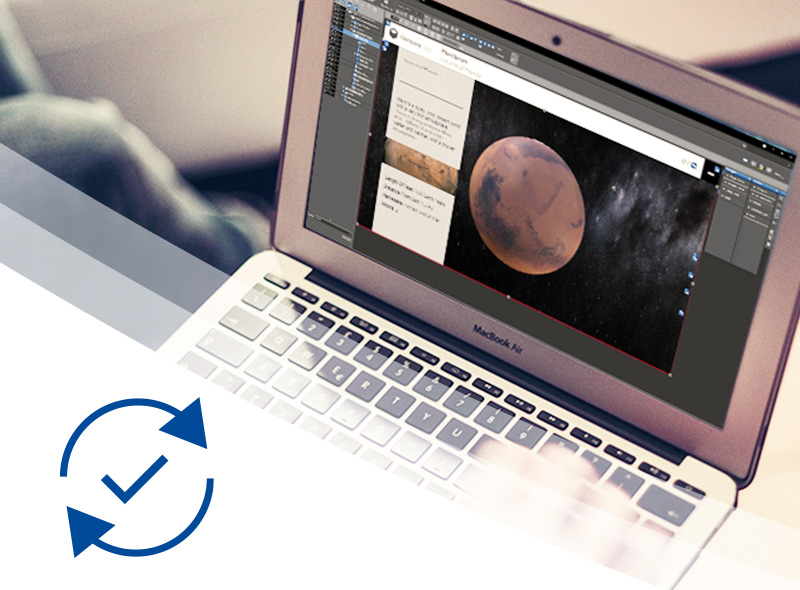Create a version,
not a copy!
In our latest 3.12 release, we’ve put the focus on one very special feature: version management.
A version is a special copy of an existing e-learning project. Unlike a normal copy, a new version is still “connected” to the original project.

What are the practical uses of version management in everyday practice? Let us explain using this possible application scenario:
Imagine you have created an e-learning course with EVOLUTION³. With our so called “language nodes” you can create additional languages in the same course, e.g. French and English. The “language node” switches certain properties (e.g. text and sound files) of objects to be language-dependent. With the XLIFF import/export you can quickly and easily translate your texts and sounds. These are then automatically inserted in the correct place in the course.
.
To this point, you don’t need a copy, or a version – EVOLUTION³ manages all course translations within a single project.
For your location in France, however, the content of the course may have to be adapted in some places. However, the original should not be changed. One possible approach would now be to create a copy of the original project. But a copy can become outdated after a short time. Any updates to the original project would then have to be painstakingly entered manually. This costs a lot of time and errors can also creep in. So this is not the best solution.
Instead of creating a copy of the original, you now have the option to create a version with EVOLUTION³. Just like with a copy, editing a version does not change the original course content. So in our example, you can change the content for the French locale in the version you create without affecting the original project.
.
But, of course, that’s not all:
Now imagine that certain content from your original course must always be included in the French locale version and must also not be changed. By defining mandatory elements in the original project, you can ensure exactly that: Mandatory elements can neither be changed nor deleted in the new versions.
Here again are all the advantages at a glance:
- Changes in versions do not change the original project
- Defined mandatory elements cannot be changed or deleted in versions
- Versions can be synchronized with the original project at any time
- Eliminate the creation of an unmanageable number of (obsolete) copies
.
.
.
.
By the way: In EVOLUTION³ versions are clearly marked in your list of projects. In the project information you will also find further important metadata about the original project or version. So, even after years, you will know how many versions of a project have been created or what was original project was for a version.
.